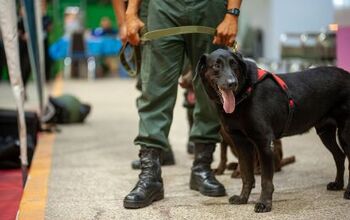Morris Animal Foundation Awards $775,000 to Test Vaccine for Bone Tumo

Osteosarcoma, a highly aggressive and deadly bone cancer, can affect any canine, regardless of their size or breed. Once diagnosed, the disease tends to progress rapidly, often metastasizing to other parts of the dog’s body, which only makes matters more difficult. But, according to a team of researchers from the University of Pennsylvania, things could be looking up for dogs diagnosed with osteosarcoma.
The team already did a pilot study that included 18 dogs, and the canines who received the vaccine lived more than twice as long as those who didn’t. This potentially groundbreaking bone cancer vaccine is a novel form of immunotherapy that combines Listeria bacteria with its harmful genes removed and markers of osteosarcoma cells. The combination ensures that, once injected, the vaccine can target the specific cancer markers that have spread to the other organs in the dog’s body. After the dogs received the vaccine, their immune system was able to find the cancer cells and eliminate them.
The results of the pilot study were so compelling that Morris Animal Foundation decided to support the research with a $775,000 grant, which is one of the largest they’ve ever awarded. The grant will enable the Pensylvania scientists to go to the clinical trial phase, which will include 80 dogs and involve 11 veterinary centers across the United States.
It is estimated that osteosarcoma occurs in more than 10,000 dogs each year. In 85 percent of cases, dogs don’t make it past the second year after the diagnosis, mostly because of metastasis which is hard to detect. If this vaccine proves to be as effective and safe as it was in the pilot study, numerous dogs could get another chance at life and get more time to spend with their families. And not only that: if this proves to be a breakthrough in immunotherapy treatments for cancer in dogs, more researchers might start using it to treat other types of dog cancer, as well.

A proud mama to seven dogs and ten cats, Angela spends her days writing for her fellow pet parents and pampering her furballs, all of whom are rescues. When she's not gushing over her adorable cats or playing with her dogs, she can be found curled up with a good fantasy book.
More by Angela Vuckovic























